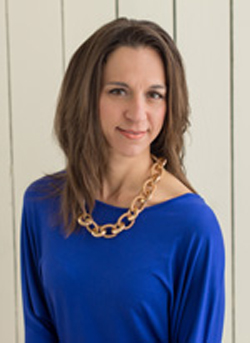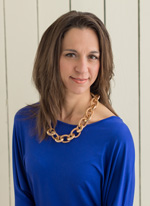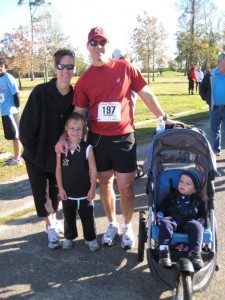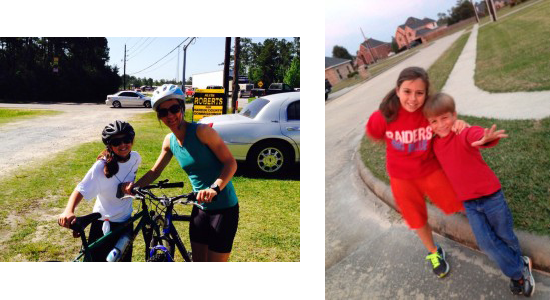 For the past few weeks, I have been writing about issues kids face at school, such as: Changes and Transitions at School, Not being Accepted at School, and Kids Sharing Their Faith at School.
For the past few weeks, I have been writing about issues kids face at school, such as: Changes and Transitions at School, Not being Accepted at School, and Kids Sharing Their Faith at School.
Today, my guest writer, Sophie Adams, from Donalsonville, Georgia, tells the story she and her husband faced in their plight for their adopted children with Autism to be accepted at church. Yes, you heard right — church.
“People will never recognize you for your hard work or good deeds. Actions taken for recognition and fame will only bring about great sadness and disappointment at the end of your life travels. A lasting legacy can be forged by walking a path carved out by carrying through with tough choices and decisions that no one else wants to discuss or dirty their hands with. Be prepared to accept that the “right” thing is not going to be the “popular” thing and be willing to shoulder the burden.”
That is the thought that I posted on Facebook back in October 2014, regarding friends and truly, even family’s, less than favorable reaction to the finalization of our adoption of three (more) special needs children. I cannot say that the reaction came as a surprise. After all, a (shall I say former friend) had said to me upon learning of our first expectant special needs adoption in 2007, “Leave that to ‘the other half,’ dear. You have a life!”
In spite of all of the negative responses, and distancing from friends and even family, I certainly (and foolishly) thought that I could seek comfort in the thought that my children and my family could find acceptance and be shown love in a church family. After all, how difficult could it be? The children (now totaling 4 and all on the Autism Spectrum) were settling in and were at a place that I thought they could manage being introduced into a worship setting. What an eye opener!
The first Sunday, my youngest son, Ben, then 6, clapped his hands over his ears and began to howl like a lone wolf when the song service began. I pulled him to me until his sobbing subsided. There were some very kind empathetic looks, but some of the glares from the Sopranos in the choir loft let me know that Benjamin was way off-key when he broke loose with his high note. I ignored and pressed on. I was determined that we would make it through this service, and that my children would be able to have the “church experience” that I felt they and the rest of the family so desperately needed.
It just so happened that fine day, that the church had a special guest speaker who was very energetic. When he enthusiastically took over the mic, not only were we again blessed with Ben’s lamenting cries, but Jasper jumped up, pointed at the “guest speaker” and yelled, “STOP IT!! You are HURTING HIM!” This outburst brought more gasp and embarrassed looks than a room full of Southern Belles with a bad case of the vapors. The disdain was evident on many faces. I could hear their thoughts loudly through the darted looks we were getting and decided we best leave before we were asked to leave.
The next Sunday, I was approached upon entering the church and “guided” to the nursery. “Yes, I thought to myself, this is exactly why I just spent the past 2 1/2 hours guiding my children to get ready and dressing myself — to be placed in the nursery, out of sight and out of earshot, with my brood of children (ages 6-10 at the time) who are far too old to be in the nursery.” You can imagine this did not sit well with me at all. I simply ignored the suggestion and marched in and took a seat, the kids following behind like ducks in a row.
We sat down; the choir was already in the loft. A group of little girls sitting two rows up turned with wide eyes and began to openly laugh and giggle behind their little hands. No mistaking the topic as their eyes were cutting towards my children. In that moment, it was very apparent that they were only exhibiting the behaviors that they had watched being displayed by their adult counterparts. These innocents had not yet honed the art of “deceptive fellowship,” which is so often displayed at church through so many mediums. Their mother in the choir loft noticed as well, but instead of giving a kind or apologetic look, she looked back at me from her lofty perch in a way that certainly was less than Christ-like as if to say with her eyes “What did you expect by bringing them back here?”
I must say that my children were exceptionally well-behaved that day. The call for children’s church was made, and they participated with no incident. I was thrilled and felt that a hurdle had certainly been cleared with flying colors…until…the eldest of the children came out with a downcast demeanor.
“What’s up” says I. “Well, I can’t play with that little girl,” says he. “Why can’t you play with her?” says I. Well, she (being innocent as well) said that her mother doesn’t want her to be around any of us because we aren’t normal.” Well, she got that part right. My response was “Who wants to be normal anyway?” He smiled and said “Right!”
Regardless of how much of a positive spin or smiling face I put on for my children in these situations when they arise, it is very difficult to cultivate a positive feeling towards the people that created the dismal atmosphere to begin with. It is very hard to justify gearing up and going through the agonizing actions of getting everyone ready to go to a place where the looks, the stares, the whispers, only serve to remind me that By and Large, our family and children are not wholly accepted. In fact, this is the very place where we/they should be accepted most.
Even though the children have varying degrees of Autism and MR, they also have feelings that are hurt by the callous behaviors of the “less informed.” Try as I might, I fail to understand people’s actions who behave in such a discriminatory manner… in a Church of all places. After a parent goes through the major toil of getting ready, survives at least two meltdowns, and re-groups on Sunday mornings…fear, misunderstanding, prejudices and insensitivities, are all valid causal agents that meet them at the front door of the Church. It is the combination of these things which turn “church going” into a larger than life burden for special needs families. Soon the judgmental looks, condescending attitudes, and exclusion of the children becomes too much and the family says “Enough.” I reached that point.
What can people do to change this culture of unacceptance? First and foremost, people need to realize and show a genuine empathy for the Moms and Dads who are making the effort to bring their children to church. Recognize that it took a lot more effort than you could begin to imagine to even get through breakfast, much less get to church. The lady who sniffs and says “I had six children and managed to get them to Sunday School on time” should not draw parallels since more than likely her children were not special needs children.
Secondly, see the child just as that, a child. Not a child with special needs, not the little boy who disrupts church with his howls, just a child. Let him play with other children because it is through this mainstream play that he learns, he grows, he worships. When he is put in the nursery, his growth and ability to learn is further delayed if not regressed upon.
Do not condemn parents for the un-loveable behaviors their children may display in the most alarming of times. Certainly don’t jump up with a shell-shocked look on your face and make a grab for the child to remove them from the service while saying through a forced smile “Let me take him to the Nursery for you.” What you are really saying to the parents is “Leave and don’t come back…ever.” Talk to your children about disabilities and behaviors and give them a reason to be kind, caring, and inclusive, rather than the opposite. Teach sensitivity through example. Actions speak so much louder than words.
I encourage each reader to volunteer with the special needs program within your school systems. Find a way to show your love to a family that has a special needs child or children. Read as many articles as possible regarding different disabilities and cultivate knowledge of varying issues that special needs families face as a family with a disabled child is disabled as a whole. Perhaps your church can establish a special needs ministry.
Many people still won’t “get it” because they have not had a personal experience with anyone with a special need or a person with disabilities. However, as time has proven, this is a group that is growing in number. They are not a problem to be solved, but people to be loved. My husband and I do believe that wholeheartedly as we seek to adopt another special needs child.
Little did she know when she quipped it, but my old friend said it best “I have a life!”
Thank you, Sophie, for sharing your family’s story with us. Perhaps it will serve as a wake-up call that we in The Church, as well as Society, should further our need for education in the acceptance of Special Needs Children. Surely, we can learn to show love of Jesus.
 Sophie’s Bio
Sophie’s Bio
Sophie Houston Adams is Mom to 3 adult children and 4 school-aged children who were knowingly adopted as special needs children. She and her husband Mike have been married 26 years, traveled extensively due to Mr. Adams’ past Naval career, and have fostered over 25 children in the past 8 years. Five of the Adams’ children are designated as special needs children. They now reside in their hometown of Donalsonville, GA.
 Hannah and I are continuing our series on “hot topics” children face in today’s world. Thus far, we’ve talked about issues they face at school, and even have taken a trip to church with Special Needs Children. Oh yes, how about the time we took a trip with Hannah’s children church minister as she did a video interview with class members on how they share their faith at school. All of this is in an effort to give parents, grandparents, school officials, church leaders, or any caring adult ideas that will help them become more actively involved in issues that are of concern to our children.
Hannah and I are continuing our series on “hot topics” children face in today’s world. Thus far, we’ve talked about issues they face at school, and even have taken a trip to church with Special Needs Children. Oh yes, how about the time we took a trip with Hannah’s children church minister as she did a video interview with class members on how they share their faith at school. All of this is in an effort to give parents, grandparents, school officials, church leaders, or any caring adult ideas that will help them become more actively involved in issues that are of concern to our children.

 As a busy working mom and someone with over 24 years of experience in the wellness and fitness industry, I am passionate about helping busy women design a fitness & food plan and achieve life balance. I understand the challenge of managing hectic schedules and responsibilities with the desire to stay healthy and fit, and have the time to be the woman God created you to be.
As a busy working mom and someone with over 24 years of experience in the wellness and fitness industry, I am passionate about helping busy women design a fitness & food plan and achieve life balance. I understand the challenge of managing hectic schedules and responsibilities with the desire to stay healthy and fit, and have the time to be the woman God created you to be.










 For the past few weeks, I have been writing about issues kids face at school, such as:
For the past few weeks, I have been writing about issues kids face at school, such as:  Sophie’s Bio
Sophie’s Bio